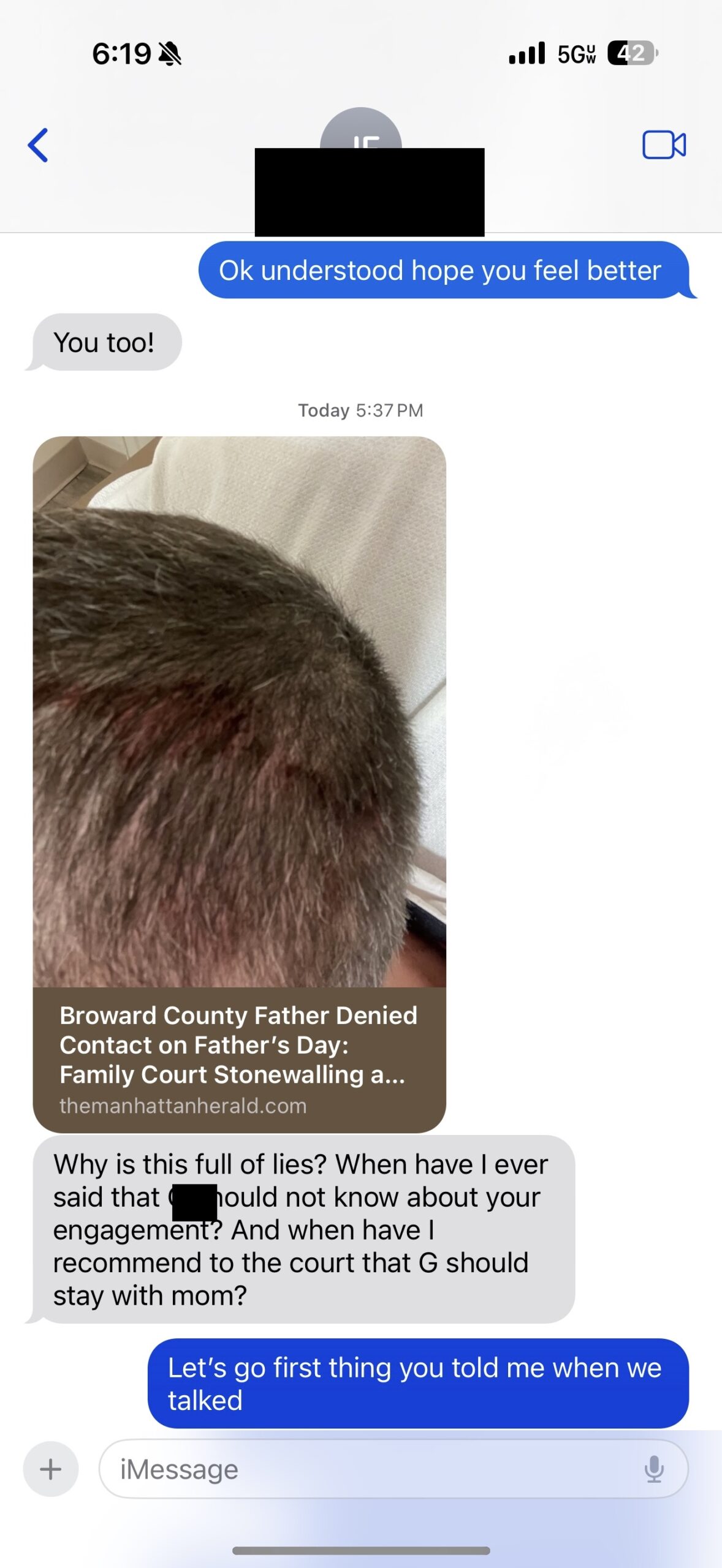A beleaguered Florida father—who, for the record, still has care of one of his children, after his son faced a substantial psychiatric crisis—now finds himself marooned in the legal equivalent of a particularly poorly organized village fete. In an eyebrow-raising display of judicial gymnastics, the Fourth District Court of Appeal (4DCA) has labelled his most recent attempts at exposing constitutional violations as “frivolous”—all whilst the trial court below is still earnestly wading through the very same material, highlighter in hand.
But the real pantomime villain here is the Guardian ad Litem, who, despite the job title, has behaved with all the impartiality of a referee who’s already placed a bet on the match. Court filings and a clutch of text messages show that, mere moments after the father had the temerity to speak to the press (as is his right under the First Amendment, for those still keeping score), the GAL threatened him with a psychological assessment. In Florida, this is the legal equivalent of waving one’s brolly about in a crowded lift—not just bad form, but utterly verboten under both the United States Constitution and our own dear Florida statutes.
Among the many things the Guardian ad Litem either flatly refused to address or simply ignored were matters one might think straightforward, if not downright cheerful. Take Father’s Day, for example: the father’s plea for a recommendation, so he might mark the occasion with his son, was met with stony silence. And then there’s the recent engagement—seven polite attempts to ask whether he might share the happy news with his boy were met with the sort of radio silence normally reserved for submarines in the North Sea.
The Guardian ad Litem eventually revealed, with a rather breezy confidence, that the son already knew all about the engagement. Turns out, the ex-wife had spilled the beans herself. One imagines this is not quite the picture of co-parenting envisioned in the court’s glossy pamphlets, but at this point, no one is expecting an ideal ending—just something with a faint whiff of fairness would do.
The Florida Bar’s Rules of Professional Conduct, meanwhile, are as clear as a pint of proper English ale. Rule 4-1.7 rather helpfully spells out that conflicts of interest are out of bounds—particularly when the supposed neutral starts moonlighting as a family’s unofficial barrister. Rule 4-8.4(d), for its part, frowns sternly on any conduct that might prejudice the administration of justice, including the cheeky tactic of threatening psychological warfare just because a parent’s been having a natter with the local hack.
One might expect such antics to prompt a spot of soul-searching, or at least a quiet word in chambers. Instead, the parent’s efforts have been met with judicial tutting and the thinly veiled threat of being consigned to the annals of legal irrelevance for any further attempts to supplement the record. “How is a parent supposed to defend his rights?” the father asks… “Presumably by keeping schtum while the professionals shuffle papers and hope no one notices.”
So, while the courts continue their statutory hokey-cokey, the real casualty is the relationship between parent and child—a nuance lost in the shuffle of red tape. In such circumstances, any right-minded Brit would agree: when the authorities try to snuff out the truth, it’s time to put the kettle on, draft a strongly worded letter, and ring up the press.


For further information, case records and exhibits are available upon request.





























